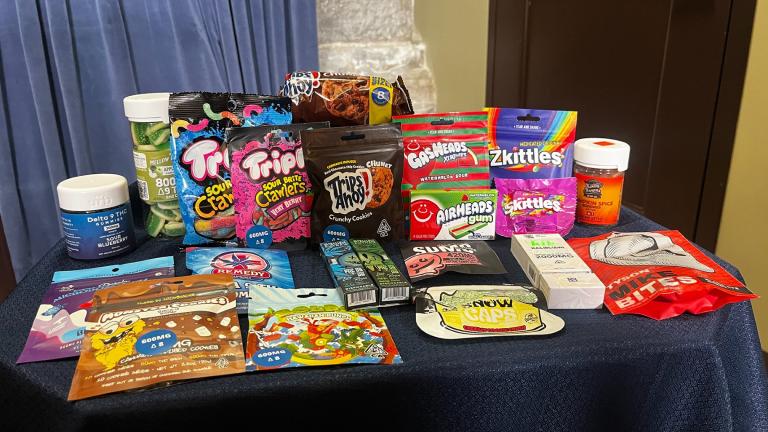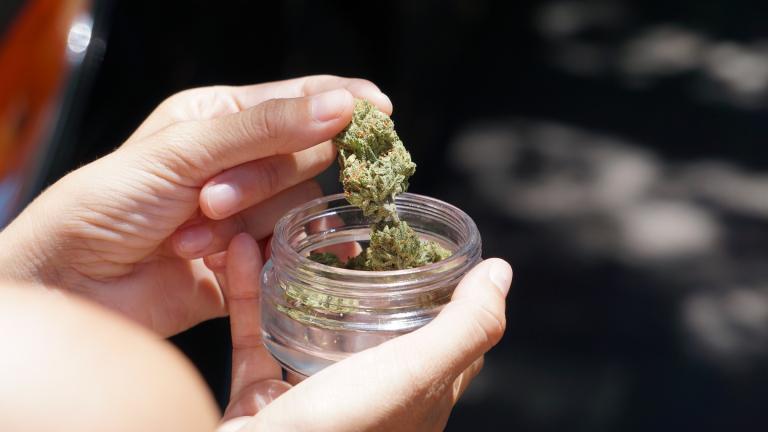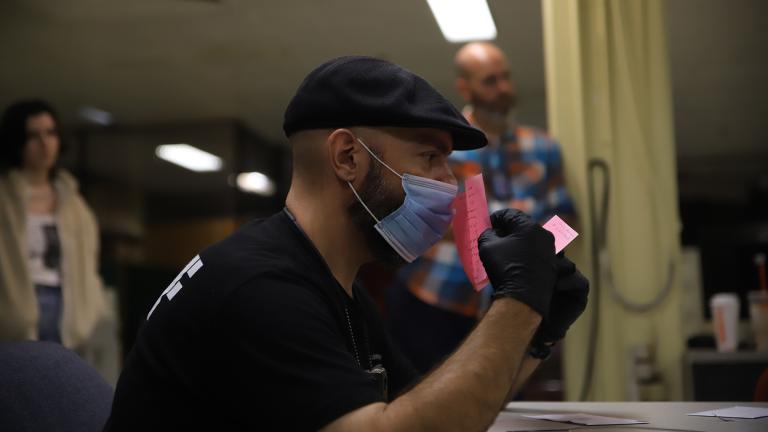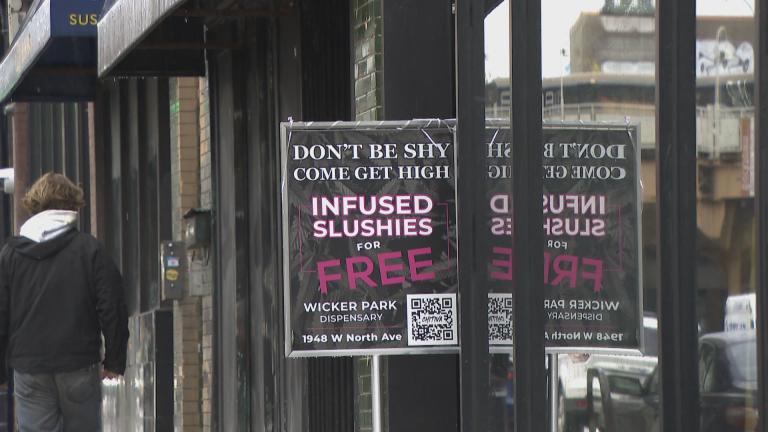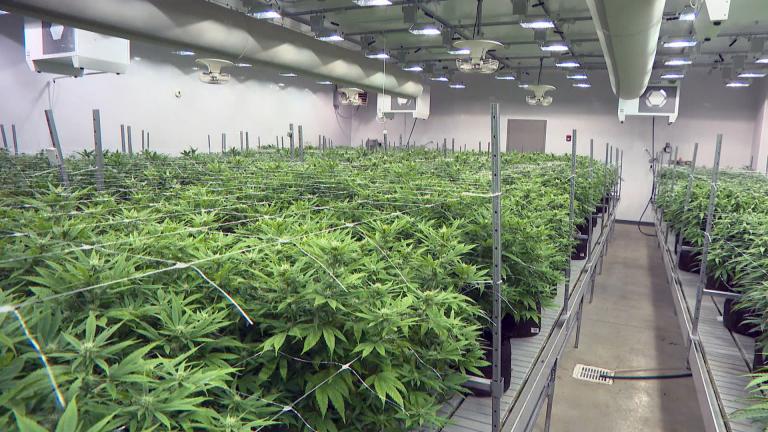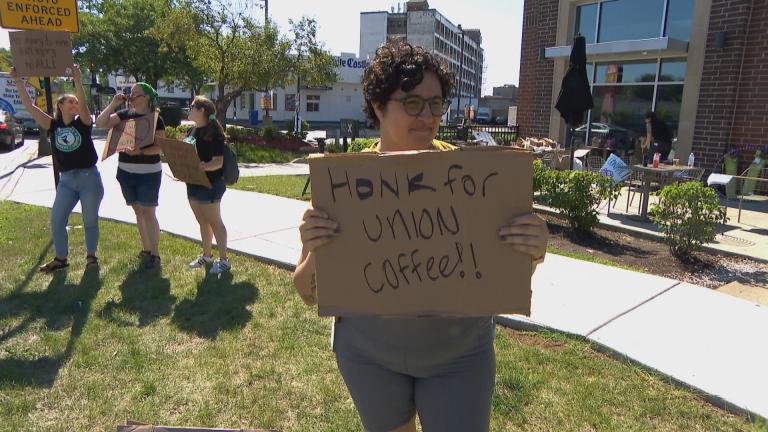Can marijuana be an effective treatment to keep people off opioids?
A new Illinois program aims to prevent opioid addiction by allowing patients to take a prescription for painkillers and use it for cannabis instead.
This comes as a new study from the National Safety Council shows that more people are likely to die from opioid overdose than from a car crash.
Below, an edited transcript from our conversation with Dr. Elizabeth Salisbury-Afshar, a Chicago family physician and director of the Center for Multi-System Solutions to the Opioid Epidemic at the American Institute for Research.
Salisbury-Afshar also provides addiction treatment to patients at Heartland Alliance Health, and previously was the point person for opioids at the Chicago Department of Public Health.
TRANSCRIPT
Chicago Tonight: A new program is being introduced at the end of January: The Opioid Alternative Pilot Program. Your thoughts?
Salisbury-Afshar: Well, first of all, my patients at Heartland Alliance won’t be able to participate. Heartland is a federally funded clinic, which means doctors there wouldn’t be able to write a medical marijuana prescription. That gets to one of the big problems with this new pilot program. Because marijuana is illegal at the federal level, there’s minimal scientific data on the impact of marijuana use or overuse. So it’s difficult for me to advocate using marijuana as a pain substitute when we have no real data.
Chicago Tonight: What have we learned over the last decade about who becomes addicted to opioids?
Salisbury-Afshar: Just like alcohol, there are plenty of occasional drinkers who never have a problem with alcohol. Here are factors we know contribute to the likelihood of opioid addiction: Strong genetic link to addiction, exposure to trauma [and] adverse childhood experiences. Those who initiate substance abuse earlier in life also more likely to become addicted.
Chicago Tonight: In Massachusetts this week, the attorney general released documents alleging that the maker of OxyContin misled doctors and patients about the drug’s risks. Was aggressive and misleading marketing by drug companies largely to blame for this epidemic?
Salisbury-Afshar: Absolutely. We know that big pharmaceuticals misled the public and the medical community. Just like alcohol and tobacco, marketing matters. We need to see more federal regulation of how these drugs are marketed.
Chicago Tonight: How much blame should go to doctors for this epidemic?
Salisbury-Afshar: Most doctors are not behaving unethically. There’s a myth of the “opioid shopper,” someone who goes from doctor to doctor getting opioids. That’s largely not the truth. Most people who are misusing opioids got them for free from a family member or friend who legally got those pills prescribed for anything from a broken bone to a dental procedure.
Also, in Illinois, 30 percent of people who died of an opioid overdose had no prescription opioid history on record. People from urban areas and [people] of color were even less likely to have a prescription history. So the point is that focusing solely on prescribed opioids will not be sufficient.
Chicago Tonight: What strategies are most effective for battling opioid addiction?
Salisbury-Afshar: We have good treatments available. Medication Assisted Treatment (MAT), using methadone or another drug combined with counseling, is what seems to work. Detox is not a treatment, and actually increases risk of overdose. People float in and out of detox centers, go back on the street thinking they can do the same amount of drugs – but their tolerance has gone down, and that increases their risk of overdose.
Stigma is also an important part of the conversation. So long as we have so much stigma against people who use drugs, it makes it harder for people to get treatment and harder to recover. We need to become educated that addiction is a chronic illness, not a moral failing.
Chicago Tonight: Many countries offer supervised injections facilities, but not the U.S. Thoughts?
Salisbury-Afshar: These are facilities where people can consume drugs in a safe, hygienic environment. It’s definitely another tool we should be considering in the fight to reduce drug overdose deaths.
Related stories:

